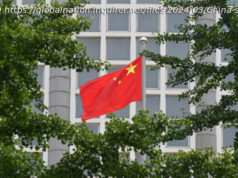Using its expertise as a yuan offshore centre to have more trade settled in the Chinese currency and helping boost productivity in China are two areas where Hong Kong can make a contribution
Following on from the 25 per cent tariffs on imports from China it imposed in July, the Trump administration kicked off a second round of tariffs on US$200 billion worth of Chinese goods on September 24. China immediately retaliated by slapping tariffs on American products worth US$60 billion, but US Secretary of State Mike Pompeo bragged in a TV interview that the United States would eventually win in this trade war with China.
The latest US tariffs signal a further escalation of the trade war between the world’s two largest economies. Analysts and economists around the globe have warned of dire consequences for the world economy.
Hong Kong, being an open economy and the world’s seventh-largest trading entity, and which serves as an entrepot in US-China trade, will feel the pain at the end of the day.
Given our close ties with China, any slowdown in Chinese exports to America will affect Hong Kong’s economy, particularly the logistics, shipping, trade financing and insurance industries, as well as small and medium-size companies that depend heavily on the re-export business.
Meanwhile, some pundits and think tank experts predict that the US-China trade conflict will drag on for years, because they believe that US tariff warfare is a disguised strategy to curb China’s rise on the global scene as well as its technological development. Given its status as a special administrative region within China, the possibility that Hong Kong might also be targeted by the Trump administration cannot be dismissed.
Recently, some on social media have called on people in Hong Kong to take action as an act of patriotism. They have urged the public to unload the US dollar and buy the yuan, which has faltered in value against the US currency since the trade war began. However, this is merely a drop in the ocean. Indeed, it would be a strategic advantage for China to have a weak currency to boost trade with other countries.
I have also heard some people argue that we could impose tariffs on imports from the US, since the United States is Hong Kong’s fifth-largest supplier of goods. According to the Census and Statistics Department, Hong Kong was the US’ third-largest wine market and sixth-largest beef market in 2017.
However, I believe that Hong Kong can play a constructive role in supporting the economy of the motherland.
Instead of asking individuals to buy yuan, Hong Kong could make the best use of its role as one of the largest offshore yuan centres in the world to encourage international trade invoices to be denominated in yuan instead of US dollars.
At the same time, news reports about the central government trying to stimulate domestic spending to offset reliance on exports to the US should be an opportunity for businessmen and retailers to make a contribution. They can sell Hong Kong products and quality services in mainland markets to help stimulate domestic consumption.
In addition, Hong Kong can capitalise on its “one country two systems” status to help mainland enterprises explore overseas markets, for example via the “Belt and Road Initiative”.
Perhaps the best way for Hong Kong to play a constructive role is to team up with top mainland scientists and experts in innovation to leverage new technologies to bolster productivity and hasten the shift of the country’s economy from exports to an innovation-driven one. In the Global Innovation Index 2018, Hong Kong ranked 14th among 126 countries, three places higher than China.
For the time being, the best that we can do is hope that China and the US will not fall into the Thucydides Trap, while doing our best to back the motherland in the trade conflict.
Ken Chu is the group chairman and chief executive of Mission Hills Group and a national committee member of the Chinese People’s Political Consultative Conference






